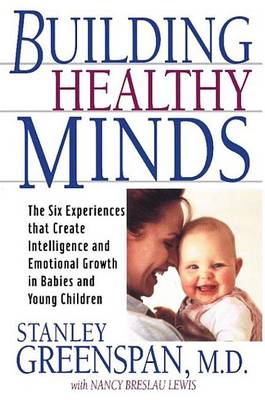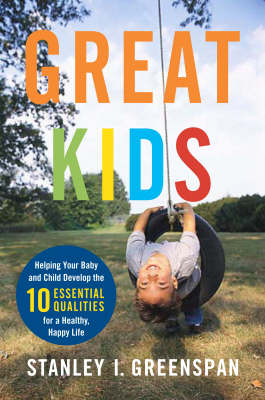A Merloyd Lawrence Book
3 total works
Stanley Greenspan, internationally known for his work with infants, young children, and their families, and his colleague, nationally recognized child psychologist Serena Wieder, have for the first time integrated their award-winning research and clinical experience into a definitive guide to raising children with special needs. In this essential work they lay out a complete, step-by-step approach for parents, educators, and others who work with developmental problems. Covering all kinds of disabilities including autism, PPD, language and speech problems, Down syndrome, cerebral palsy, and ADD the authors offer a new understanding of the nature of these challenges and also specific ways of helping children extend their intellectual and emotional potential.The authors first show how to move beyond labels to observe the unique profile strengths and problems of the individual child. Next, they demonstrate the techniques necessary to help the child not only reach key milestones but also develop new emotional and intellectual capacities. Greenspan's well-known "floortime" approach enables parents, as well as clinicians, to use seemingly playful interactions that help children actually move up the development ladder and often master creative and abstract thinking formerly thought beyond their reach. Including vivid case histories, the book also offers deep and compassionate understanding of the stresses and rewards involved in raising a child with special needs.whose amazing work with autistic and other special needs children is nationally known, and his colleague, child psychologist Serena Wieder, have integrated a lifetime of research and clinical practice into a single, comprehensive guide for parents. Covering all kinds of disabilities including cerebral palsy, autism, retardation, ADD, PDD, and language problems the book offers specific ways of helping all children reach their full intellectual and emotional potential.First the authors show how to move beyond the label and observe the strengths and problems of the particular child and the key milestones that must be reached. Next, they move step by step through the techniques necessary to help the child reach these milestones and show how to tailor these to each child. Finally, with a deep and compassionate understanding they outline the marital, educational, and social stresses and rewards in raising a special needs child.
Every parent wants to raise a bright, happy, and moral child, but until Stanley Greenspan investigated the building blocks of cognitive, social, emotional, and moral development, no one could show parents how and when these qualities begin. In this book Dr. Greenspan, the internationally admired child psychiatrist, identifies the six key experiences that enable children to reach their full potential. In Building Healthy Minds, he draws upon discoveries made in his research and practice as he describes the many ways in which games, fantasy play, and conversations with and without words encourage this development. No one has looked so deeply into the very earliest stages of human development, and no other book makes such vital and effective information available to every parent.
Parents all over the world have certain universal aspirations. They want their children to contribute meaningfully to society and to pursue their own dreams. But we appear to be missing the essentials. In this inspiring book, based on 30 years of research and practice, Dr. Stanley Greenspan redefines the qualities of an emotionally and intellectually healthy child and identifies the ways that parents can help their children develop each quality. The qualities that make us call a child a "great kid," such as empathy, curiosity, and logical thinking, are fundamental and underlie all the academic, athletic, and social talents that a child might develop. We are not born with these traits, Greenspan demonstrates, they come from experience, which suggests that each and every parent can encourage them and that each and every child can strive to acquire them.


